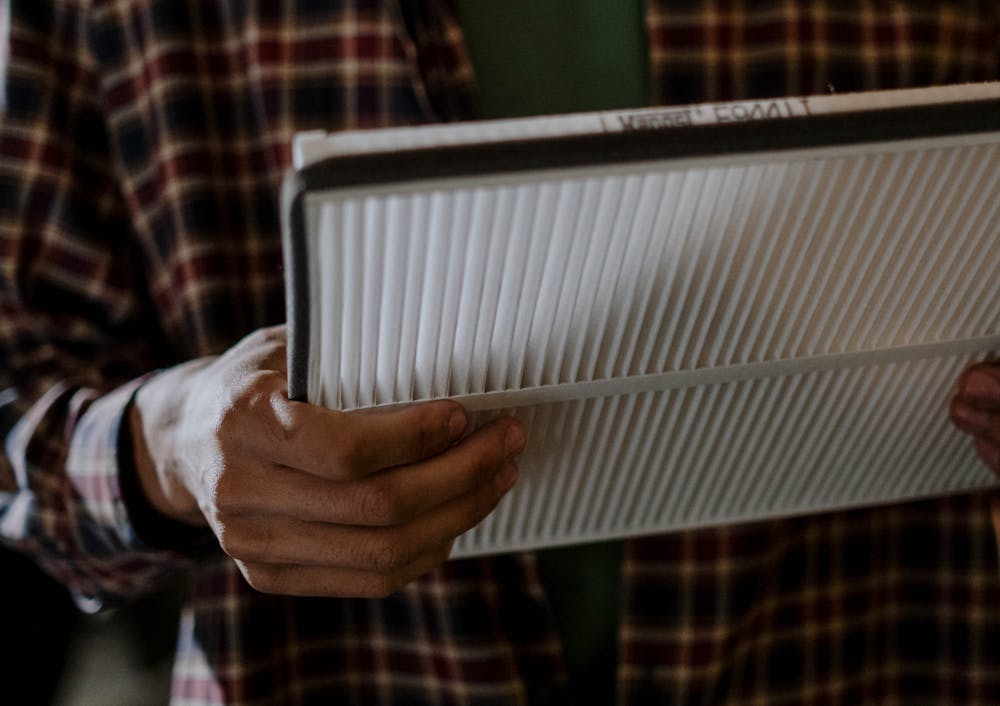Selecting the ideal HVAC air filter for your house is crucial. The heating and cooling system’s coils and heat exchangers are kept clean by residential HVAC filters, commonly known as furnace filters. The system has to work harder when such parts become dirty. Your heating and cooling system will last longer if the air filter is kept clean.
The kind of filter in your air conditioner and heater contributes to the cleanliness of the air that you and your family breathe. Numerous variables, such as the number of people and pets residing in the house and the activities that take place there, affect the kind and quantity of particles in the air in your home. Individuals who suffer from allergies or asthma should take additional care to maintain clean residential HVAC filters.
What are residential HVAC filters?
The first thing you should understand is the precise function of an air purifier and its potential benefits. A little appliance called an air purifier—also referred to as a “air cleaner”—can eliminate impurities and toxins from the air in a room or throughout a house. They could be bigger systems that integrate with an HVAC system or smaller, standalone gadgets.
Understanding the Importance of Air Filters
Choosing the right air filter size has an impact on more than just the air you breathe. They enhance indoor air quality by doing the dirty work that none of your other appliances are willing to undertake. Any home must have air filters, and here we will explain why air filter size matters. Your lungs could be getting clogged with dust and pollen that are blowing about in the air if your filter isn’t fitting properly.
What is the MERV Rating or efficiency of Air filters?
HVAC filters are rated using a variety of systems, the most popular of which is MERV (Minimum Efficiency Reporting Value). When purchasing a furnace or air conditioning filter, homeowners can utilize the rating to evaluate and choose the best Furnace Filters for their particular needs.
MERV 8: These filters are frequently utilized in residential settings and offer decent filtering. To provide more surfaces for collecting particles, they are frequently constructed of pleated paper.
MERV 11: These mid-range filters are comparatively high-quality and capable of capturing particles as fine as one micron or greater.
MERV 13: The best standard filters on the market are these high-efficiency filters. They are capable of eliminating particles as fine as 0.3 microns or bigger.
Guide for Buying Air Filters –
Size of air filter: Check the measurements of the current filter to make sure it is the right HVAC filter size before buying a new one. The majority of furnace filters used in residential HVAC systems are one inch thick; but, due to the volume of air that circulates in certain homes, filters up to four inches thick may be necessary.
Noise Level: Filter noise should be taken into account before selecting air filters to maintain a peaceful and comfortable atmosphere. This is a crucial factor to take into account because air filters run constantly and loud noises can cause disruptions in residential environments.
Power Consumption or Efficiency: Like all equipment, the energy requirements of various models of air purifiers vary. When purchasing an air purifier, keep in mind that they require continuous operation, therefore take the utility cost into account.
Budget: Of course, budget is another factor to take into account when selecting a filter. The size of the filter and the filter you select will ultimately determine how much it costs. Filter Price increases with higher ratings and larger filter sizes.
Conclusion
Choosing the right air filter like 12x25x1, or 12x24x1 requires knowing your demands or the size of the area you occupy, deciding on the type of filter, and taking into account optional features.
You may ensure better indoor air quality and enhance your general health by making an informed purchase with Custom Filters Direct using the advice provided in the preceding content.


